
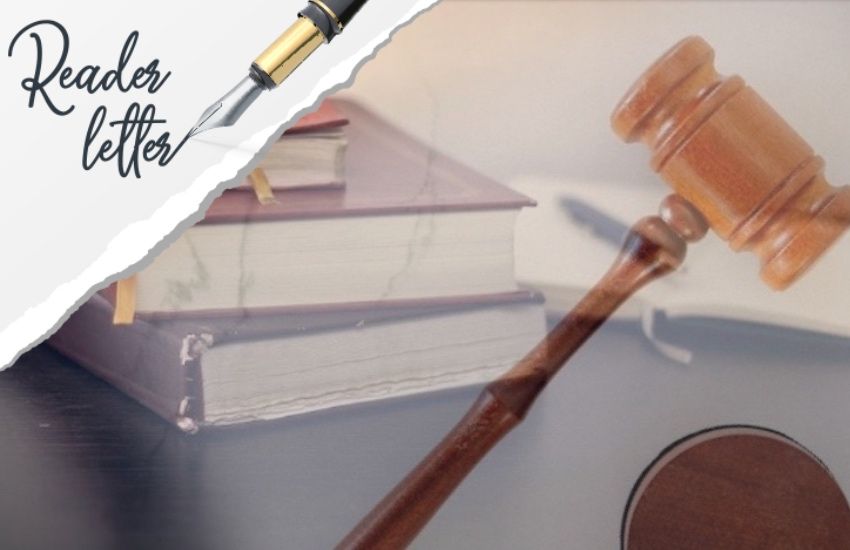

"I read with interest the recent opinion piece by Advocate Blakeley titled 'How can the law hold the government to account?' which implies that the law itself is accountable, which is not the case in the island.
If a lawyer makes a mistake in executing their duty on behalf of a client, then the client can raise a complaint with the firm employed. However, the law firm will investigate itself and can conclude they were not at fault. (Can you imagine any other conclusion being likely?)
They are not able (or are not willing) to question any investigation, conclusion or indeed the detail of the complaint itself.
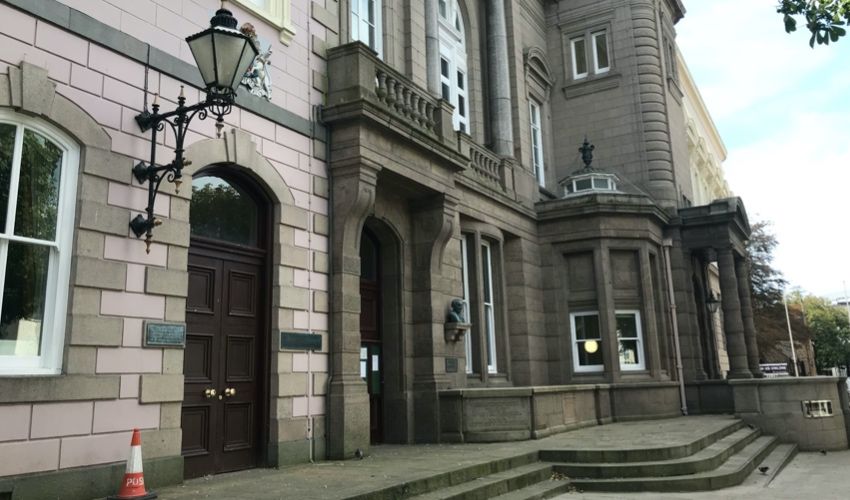
Pictured: "It is absolutely clear that there is a need for independence."
Since their published objectives includes "To regulate, foster and protect the interests of its members and the practice of law in Jersey", perhaps this should not be so surprising.
There is no obligation for either law firms nor the law society to answer any questions a complainant may have, nor to justify the conclusion reached and can simply ignore anything they choose, in order to support their narrative.
In the island, there is no further step to take, other than instigating court proceedings - thereby putting your trust in the very institution that failed you in the first place. In addition, you need to find a lawyer ready to take action against "one of their own", be able to afford the considerable cost of any action and in addition, have the immense personal fortitude required to undergo what would be orchestrated to be an uncomfortable, stressful and drawn out affair.
It is absolutely clear that there is a need for independence. Recent cases have shown that lawyers are not above inappropriate behaviours, the Law Society of Jersey going as far as ensuring anonymity in one case. The public therefore cannot be confident that their chosen representative is above inappropriate and unprofessional behaviour.
Every profession in the island has a form of regulation (or at least independent body for oversight), be it the Jersey Financial Services Commission, the Health and Safety Inspectorate, the Children's Commissioner for Jersey etc.
The one profession lacking this vital check point is the law, which, being at the core of the system should be the first to ensure its process and execution is beyond reproach. There is, of course, no appetite from the legal profession to implement any process which could "clip their wings".
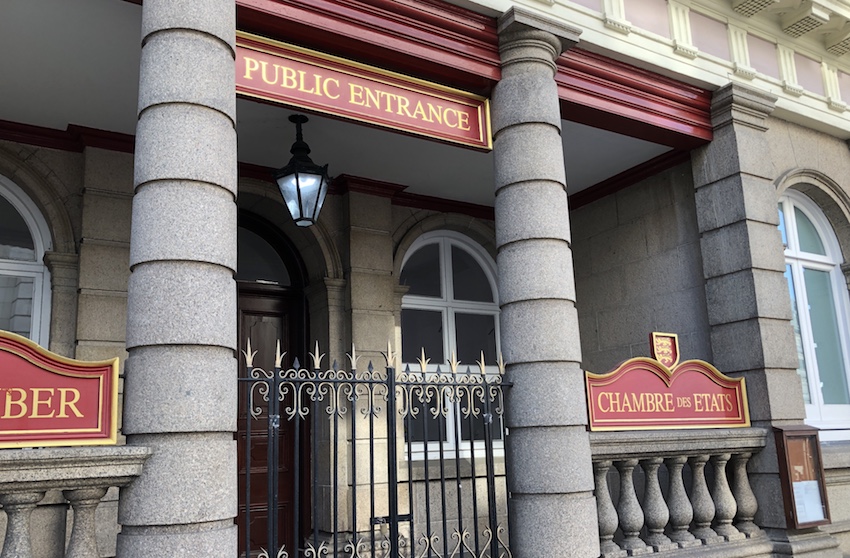
Pictured: "As Adv Blakeley states, we can vote the Government out of office, not so the lawyers."
The lack of an independent body in the UK was identified and deemed unacceptable and led, at least in part, to the split of the Law Society and the creation of the Solicitors Regulation Authority and a Legal Ombudsman which is independent of the profession.
Adv Blakeley's piece spoke of "two modes" to ensure accountability of the government, democratically and judicial review. However, we do not have one, let alone two modes for dealing with the lack of accountability of the law. As Adv Blakeley states, we can vote the Government out of office, not so the lawyers.
It would be interesting to have a companion piece that covers the topic "How can the government hold the law to account?". The government is elected by the public, so by extension, perhaps a better question would be "How can the public hold the law to account?".
Peter Jepson
The Law Society of Jersey is grateful for the opportunity to respond to Mr Jepson’s letter which, amongst other things, suggests that there is a need for an independent body to consider complaints against the legal profession in Jersey.
While it is accepted that the Law Society of Jersey performs the dual role of being the statutory regulatory and representational body for Advocates and Solicitors of the Royal Court of Jersey, when considering (and subsequently amending) the Law Society of Jersey Law 2005, the underlying legislative framework, the States Assembly was satisfied that the respective functions were sufficiently independent of each other to ensure that the interests of users of legal services were adequately protected.
By way of example, under the disciplinary provisions of the Law Society of Jersey Law 2005, complaints that establish a prima facie case of professional misconduct are referred by the President of the Law Society to an independent disciplinary committee, over which the Law Society has no control, with disciplinary matters heard by a panel, comprising a senior lawyer and two lay members who are appointed by the Chief Minister.
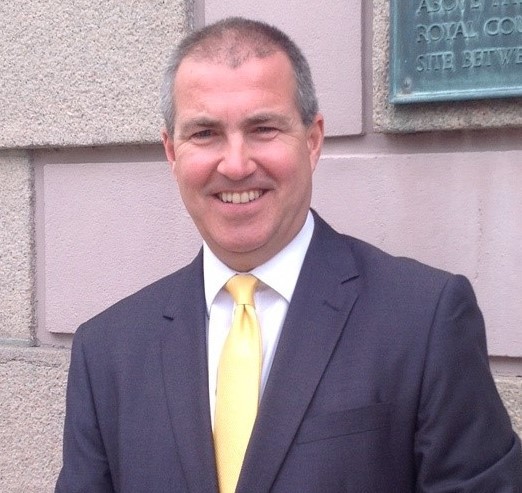
Pictured: Neville Benbow, CEO of the Law Society of Jersey.
Where the sanctions available to the disciplinary panel are insufficient for the seriousness of the misconduct, reference may be made to the Attorney General to take the matter to the Royal Court of Jersey, who are able to impose unlimited fines and to suspend or strike-off a practitioner.
Significantly though, even where professional misconduct is, on the balance of probability, proven, there is no basis upon which the Law Society, the Law Society Disciplinary Committee or indeed the Royal Court can require a lawyer or firm to pay compensation or reduce fees.
As such, the only ‘benefit’ arising for a complainant where a matter has been found proven and a sanction issued is the satisfaction that the misconduct has been appropriately addressed by the practitioner’s professional body and, in some cases, the Royal Court.
While the Law Society of Jersey is able to hold its members to account in relation to matters of conduct, as detailed in the relevant code of conduct, in common with other professional bodies and regulators, it has no jurisdiction in relation to matters of professional negligence.
In considering Mr Jepson’s assertions, it is important to distinguish between matters of conduct (which are susceptible to disciplinary action by a professional body) and matters of professional negligence (which are not capable of consideration by a professional body and can only be determined by a court).
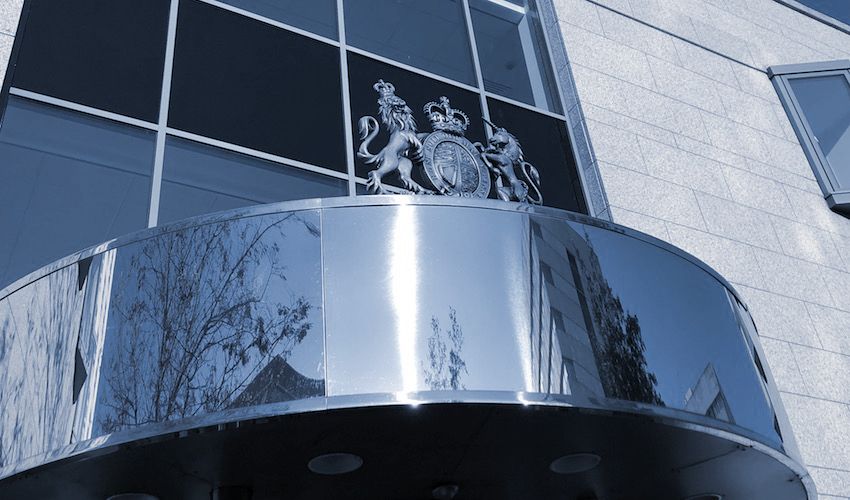
Pictured: "Mr Jepson’s position appears to be that if a law firm refuses to accept that it has made an error, the Law Society, in its capacity as the professional regulator, should intervene..."
If incorrect advice is given or a mistake is made by a lawyer or law firm in executing their duty on behalf of a client, which cannot be resolved satisfactorily between the client and the firm (or their insurers in some cases), it is for the court and not the professional body to determine whether this constitutes negligence, and to award damages or compensation based on the court’s assessment of any loss or damages arising from that negligent act. In many instances, of course, matters are settled outside the court process.
While it is acknowledged that taking a matter before the court can be highly stressful, and can be costly, the position is somewhat mitigated by the availability of the Petty Debts Court in Jersey that now has jurisdiction of up to £30,000 in respect of damages claims.
While the value of claims or losses arising from negligence in the provision of legal services may be higher than a general service or product issue, the position is actually no different from a claim for negligence against a builder for shoddy workmanship or a flawed repair of an expensive piece of equipment.
If the matter cannot be resolved satisfactorily with whoever provided the service or product, then it may be necessary to take action through the courts, albeit that the majority of such cases are settled outside court.
Unless, in this example, the conduct of the builder did not meet the professional standards or breached the code of conduct of his professional body, you would ordinarily complain to the builder themselves and not to the Federation of Master Builders.
Inevitably, in every business, mistakes happen. It is for this reason that professional indemnity insurance is mandatory for law firms; in Jersey, members of the Law Society in private practice are required to maintain professional indemnity insurance cover of not less than £2m, the purpose of which is to protect lawyers and firms against the financial of any claims for loss or damage made by clients or third parties arising from the negligent provision of legal advice or services.
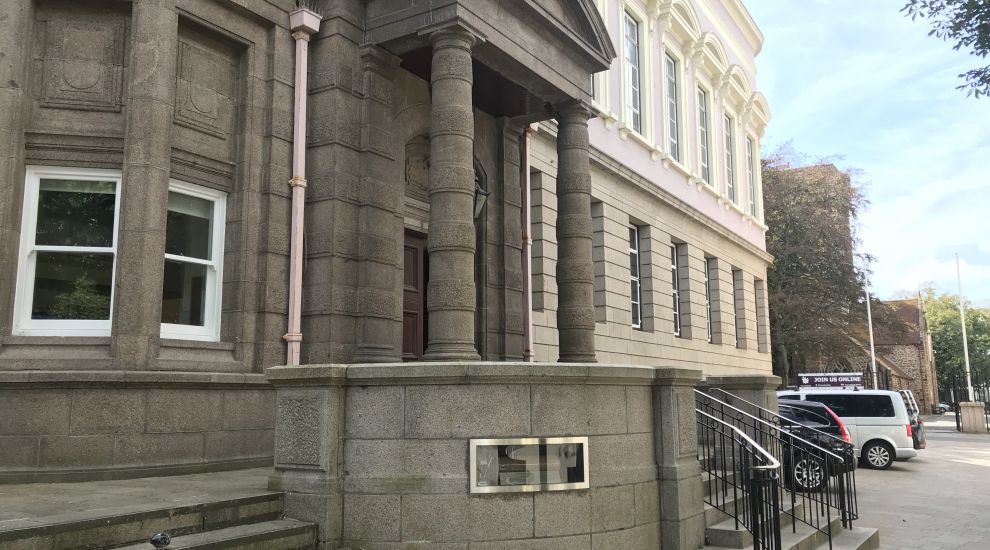
Pictured: "While we thank Mr Jepson for his thoughts, and respect his opinion, it is, unfortunately, based on a fundamental misunderstanding of how matters of professional negligence are capable of being addressed."
While professional bodies like the Law Society seek to resolve disputes between members and their clients that are raised with them, they have no jurisdiction to require members or firms to pay compensation or reduce fees, even where negligence on the part of the professional has been proven.
Mr Jepson’s position appears to be that if a law firm refuses to accept that it has made an error, the Law Society, in its capacity as the professional regulator, should intervene and require a firm to address the issue, even if it relates to a matter that is outside its regulatory remit.
Mr Jepson further argues that, if the Law Society is not prepared to intervene in matters that relate to professional negligence, it is not sufficiently independent and should be stripped of its regulatory powers in relation to the discipline of its members, notwithstanding that only through the judicial process can unresolved complaints of professional negligence be determined.
While we thank Mr Jepson for his thoughts, and respect his opinion, it is, unfortunately, based on a fundamental misunderstanding of how matters of professional negligence are capable of being addressed. Furthermore, we do not concur with the expressed view that the disciplinary process lacks independence and that this role should be passed to another body.
As such, we do not consider that any changes to the Law Society’s disciplinary process are, at this point in time, necessary."
Neville Benbow, Chief Executive Officer, The Law Society of Jersey